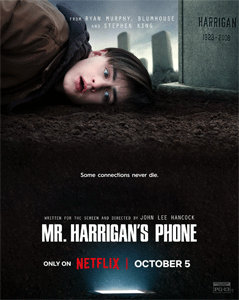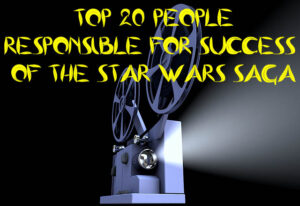Exhibit A in the case that we live in an era overloaded with entertainment options: 2022 features two psychological horror films centering on a telephone and adapted from a story by a member of the King family. “The Black Phone,” based on Owen Hill’s 2004 short story, came out a few months ago, and now we have “Mr. Harrigan’s Phone” (Netflix), based on a 2020 novella by Hill’s father, Stephen King.
The ultimate long-distance call
“Harrigan” is the superior entry, built upon two compelling performances. Donald Sutherland plays the title character, a successful and feared financier who hires young Craig to read classic literature to him for $5 an hour. Craig is initially played by Colin O’Brien; then Jaeden Martell (“Knives Out”) takes over for the teen years.
Sutherland is his deliberate, crusty self, while Martell is articulate and assured, reminding me of “Terminator: The Sarah Chronicles’ ” Thomas Dekker at that age. Writer-director John Lee Hancock (“The Founder,” “The Little Things”) gives us a light riff on “Finding Forrester” for a while, then turns toward a treatise on evil.
“Mr. Harrigan’s Phone” (2022)
Director: John Lee Hancock
Writer: John Lee Hancock, based on Stephen King’s novella
Stars: Donald Sutherland, Jaeden Martell, Joe Tippett
For a King adaptation, this is timid both as a coming-of-age yarn and as a study of evil; it makes me want to rewatch “Apt Pupil” for a meatier take. Harrigan has a vengeful side, but it’s suggested rather than plainly demonstrated. It’s illustrated in a brief subplot of Craig digging into his employer’s past. But this film is so dreamily meditative you might space on it.
The danger is that Craig will pick up this dark trait – especially since Harrigan supplants his dad (Joe Tippett) as his mentor, even from the grave. Yep, “The Black Phone’s” wall-mounted rotary phone allowed for communication with the beyond, and so does the cellphone in “Harrigan” (or so it seems).
Phones smarter than the user?
“The Black Phone” was set in the Seventies; “Harrigan” is set in the Aughts, at the dawn of smartphones. Via Harrigan, King comments on how this wonderful tech comes with unintended consequences. Harrigan notes how he’s reading Wall Street Journal articles for free, when he should be paying for them. This is a bad business practice (as I and other people on newsroom floors worldwide were also saying in the Aughts).
Harrigan isn’t concerned with the demise of newspapers specifically, but rather the broader ways an insidious, multi-tentacled puppeteer of sorts will have us by the strings in a couple decades. Hancock, via King, is correct. But they’re simply observing the present day; it’d be more impressive if this story or film came out in 2003 and predicted the future. Still, Harrigan’s observations do give “Harrigan” a pointedness “The Black Phone” lacks.
Also worth praise is the overall production of the picture, set in Maine and filmed in Connecticut. Cinematographer John Schwartzman captures striking images of a lake surrounded by sheer rock carved out of the dinosaur era. Javier Navarrete chips in a pleasantly somber score. The notes will make some viewers meditate on the themes; other viewers might fall asleep.
“Harrigan” is labeled “horror” because it hints at the supernatural, but Hancock doesn’t try for “keep you up at night” horror. Maybe he should have. Like Craig when confronted by his school bully (“8-Bit Christmas’ ” Cyrus Arnold, making a career out of such roles), this film throws a punch but doesn’t have a lot of power behind it.
Still, it’s a crisper effort than “The Black Phone.” Put that one on call waiting and answer “Mr. Harrigan’s Phone” instead. In this case, father knows best.


